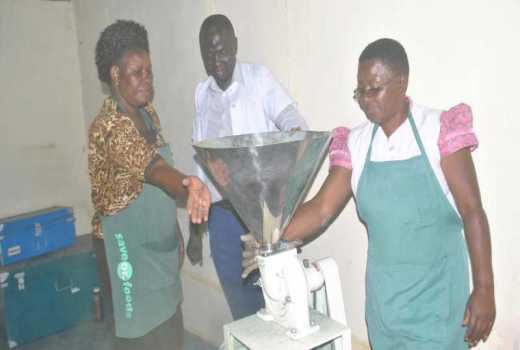
For a long time, researchers have been burning the midnight oil to find a possible cure for HIV/Aids.
The closest they have come to a cure are life-prolonging drugs, anti-retroviral (ARV) and other mitigation measures.
But now, researchers in the department of nutrition sciences and dietetics at Masinde Muliro University of Science and Technology (MMUST) have established a lab-produced mushroom that is rich in minerals that boost immunity.
Soup and porridge
The mushroom is either cooked while fresh or dried up, then milled to make flour for porridge. Its flour has been approved by the Kenya Bureau of Standards (Kebs).
The mushroom is grown on sawdust, bagasse, dried and crushed banana leaves and maize stocks.
In an interview with Saturday Standard, the lead expert at the Regional Centres of Expertise and a lecturer at the university, Gordon Nguka said the mushroom boosts CD4 count -- a snapshot of how well your immune system is functioning -- for persons living with HIV/Aids.
Dr Nguka says soup and porridge prepared from the mushrooms gives strength to patients who are unable to eat solid foods.
The porridge flour, branded Mmustmug, is sold in one-kilo packets.
Nguka who is also the National Chairman for Education for Sustainable Development said the mushroom has been foumd to also boost the immunity of people who have cancer, diabetes, high blood pressure, hypertension and arthritis.
To prepare the medicinal flour, dried mushroom is mixed with pumpkin seeds, millet, powdered milk and dried sweet potatoes that are orange in colour and then ground to produce the flour using a special mill.
“Pumpkin seeds are rich in zinc, millet has calcium and phosphorus while orange potatoes are rich in Vitamin A whereas mushroom has Vitamins B1, B2, B3, B6 and B12. People who are in good health should take at least one cup of Mmustmug porridge daily to improve their immunity,” Nguka said.
The Kakamega County Referral Hospital and other health facilities within the town have asked HIV/AIDS patients to buy the flour to make porridge. A one kilogramme packet of the flour sells for Sh250.
According to Tecla Chemutai, mushroom-laboratory assistant, the flour has attracted users from Tanzania, Uganda, Britain, USA, Nigeria and Rwanda.
“They place their orders after being referred to us and we produce as per the quantity required. Customers from overseas also pay shipping costs,“ she said.
In December alone, the laboratory sold 10,000 kilos of the flour. The project started in 2010 as a research programme but rose to a commercial venture as the demand for the lab-mushroom and the porridge increased.
The university has plans to boost production. Prof Asenath Sigot, the principal investigator on spirulina and mushroom at the university, said they will increase production once they get funding.
She said the project is costly and that for them to erect a flour-producing plant at the university, they need at least Sh5 billion.
“Phase one will take up to Sh2 billion to put up the requisite structures before we can start producing MMUSTMUG flour on large scale,” she said.
Phase 2 and 3, the nutrition sciences and dietetics professor said, will require Sh1.5 billion each.
Employment opportunities
“We are calling upon any investor willing to buy into the idea to come on board through the public-private partnership and help put up the plant so as to create more employment opportunities to the locals,” Ms Sigot said.
“In three years’ time we will be up and running if we get the money. We are ready for the job,” she said.
A shoe shiner in Kakamega town has used the porridge since December 2014.
“If you take the Mmustmug porridge and strictly ensure you also take ARVs as per the doctor’s advice, you will live long. The porridge is meant to boost your immunity,” he said.
 The Standard Group Plc is a multi-media organization with investments in media
platforms spanning newspaper print
operations, television, radio broadcasting, digital and online services. The
Standard Group is recognized as a
leading multi-media house in Kenya with a key influence in matters of national
and international interest.
The Standard Group Plc is a multi-media organization with investments in media
platforms spanning newspaper print
operations, television, radio broadcasting, digital and online services. The
Standard Group is recognized as a
leading multi-media house in Kenya with a key influence in matters of national
and international interest.











